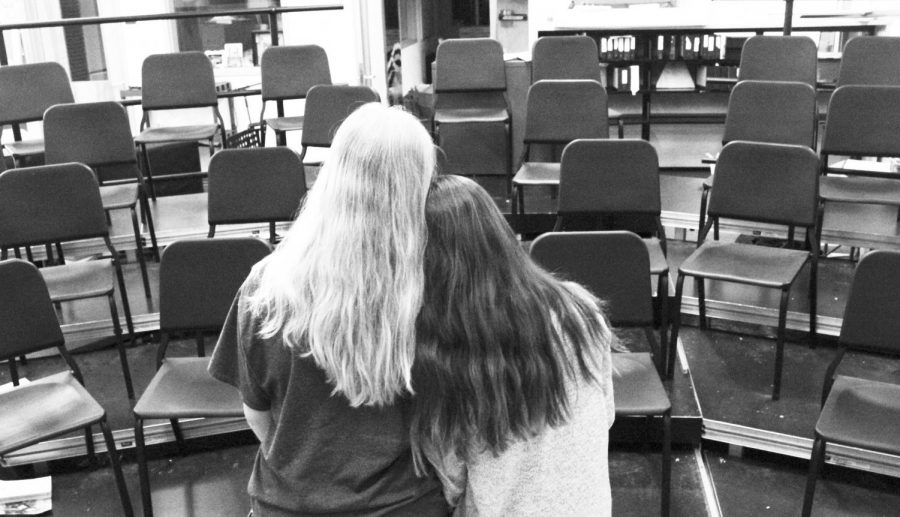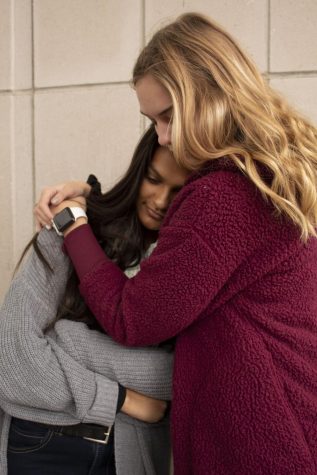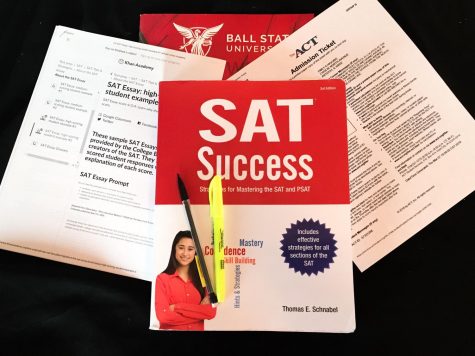Choir S.A.F.E.
As District 117 takes steps to ensure the safety of students, choir director Trey Hickey implements a new protocol to keep his classroom.
More stories from Joy Crawford
Secure, comfortable, protected. When parents send their children to school, they expect the school to make the safety of students a top priority. To ensure that these expectations are met, school officials have taken steps, like hiring new security, in order to keep the staff and students safe at Antioch Community High School. Choir director and fine arts department chair, Trey Hickey, introduced a new philosophy by the name of S.A.F.E. to his students at the beginning of last year. The acronym S.A.F.E. pushes students to create a (S)afe, (A)ttentive (F)amily (E) nvironment in the choir room as well as across the school and community.
As students grow older, typically as they enter middle school, drama becomes a bigger part of their lives than before. Unfortunately, not all drama is played out by the time students enter high school. For choir students at Antioch, catty attitudes and remarks became an obstacle to overcome, prompting Hickey to address the social aspect of being in a choir.
“In the choir classroom, feeling safe is a must as singing is a very personal act that has to be done together,” Hickey said. “If you feel self-conscious you won’t perform at your best, so implementing this motto has helped enforce that we are all in this together and we need everyone to be at their best.”
Repetition is the mother of learning; S.A.F.E. is displayed everyday in the choir room at the top of the agenda reminding students to be kind to one another and embrace the idea of being a family. Senior and A cappella choir veteran Ash Flackus believes that Hickey’s choice to introduce S.A.F.E. and his methods of reinforcing the idea have brought success in giving students some perspective as to how they treat others.
“Hickey puts [S.A.F.E.] on the board everyday and that’s one of the first things I see when I walk into choir,” Flackus said. “If we see that in every class, it would remind people [to] be a better person everyday. To try to be better everyday. I think it would really help with the whole state of the school in terms of maybe not clashing as much and getting along.”
Perfection is an illusion; every family has disagreements and choir is no different. However, after choir students began applying S.A.F.E. to their everyday routine, progress has been made in not only their etiquette, but also in their ability to set differences aside during rehearsals for the best of the choir.
“I have seen most classes come together as a unit,” Hickey said. “The biggest thing I have seen is students feeling comfortable to show who they really are.”
The choir room isn’t the only place that S.A.F.E. can be applied. Students who aren’t involved in extracurricular activities run the risk of feeling excluded and unsafe in school, but if S.A.F.E. is practiced by more students and staff members, those who feel unsafe can find the support they may not know that they needed.
Senior Ashutosh Atre has been involved in fine arts all four years and alongside many other fine arts students, also excels in academics. Atre gave his idea to spread S.A.F.E. around the school.
“The school as a whole should talk about it, but I feel that it would work better when implemented in groups where people spend lots of time together, like choir, or band or the football team or math team,” Atre said. “I think from there, it will spread through the school a lot easier.”
If Atre’s theory is correct, ACHS can reap the benefits in no time.









